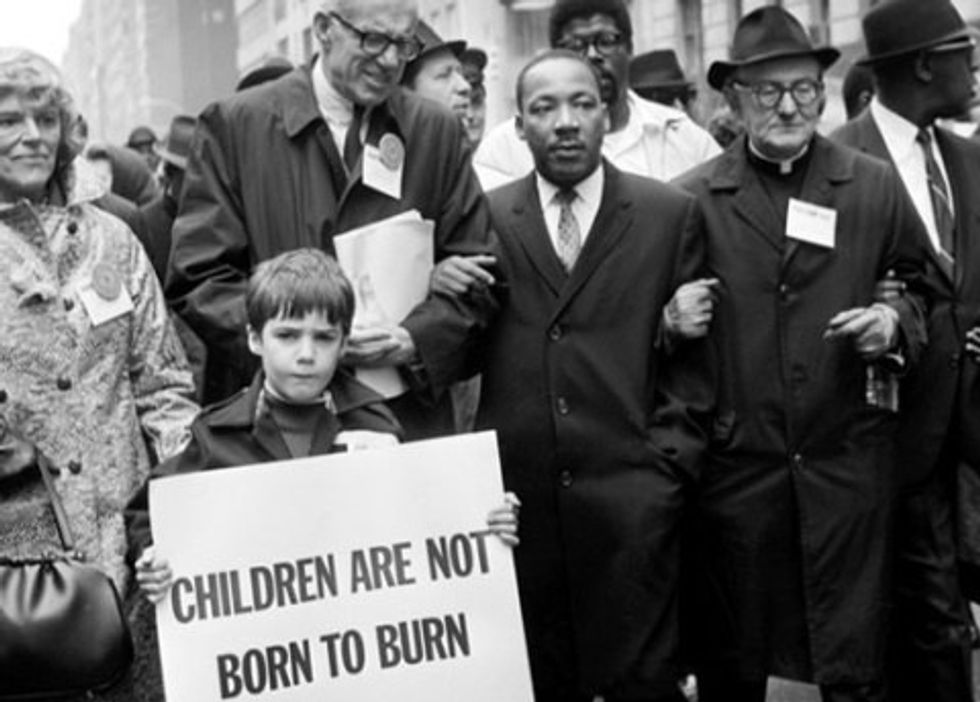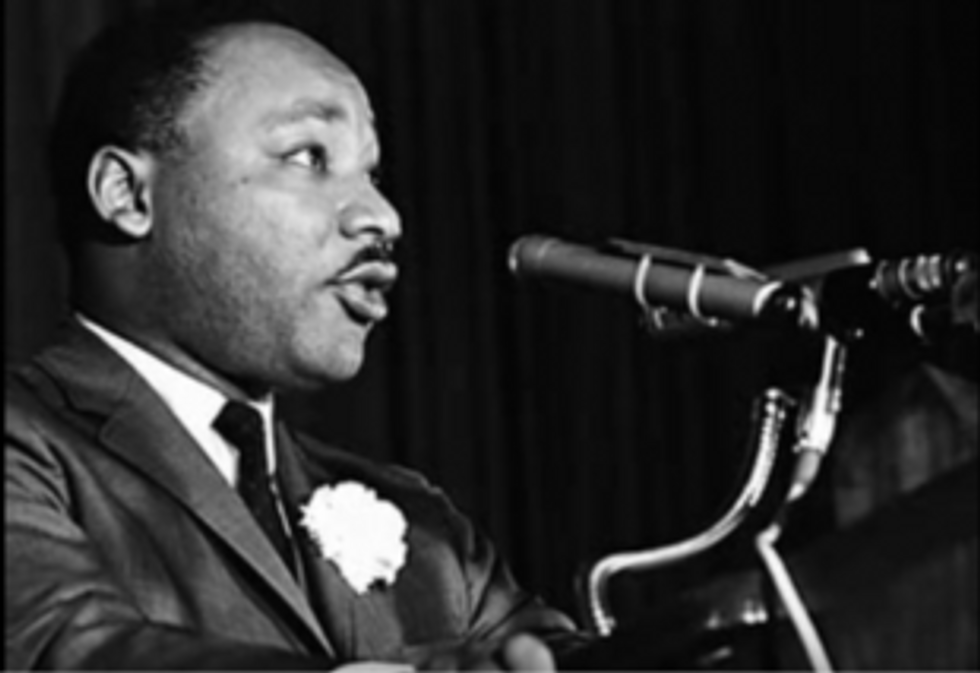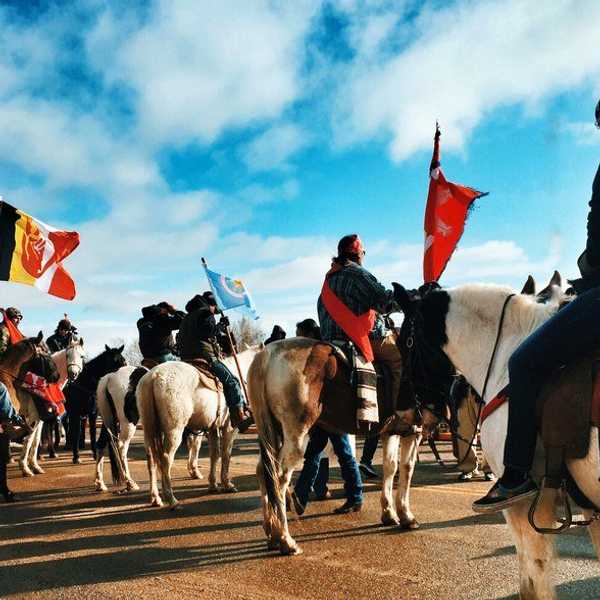Martin Luther King Jr. wasn't just a civil rights leader nor was his "I Have a Dream" speech his only speech that made an impact. Today, we're going to take a look at two of King's other speeches that have gone extremely unnoticed or under the radar for decades. It's important to understand the full picture of how remarkable King was because we're currently sanitizing his legacy by teaching only the tame side of King.
Historian and American foreign policy critic William Blum will be the first to tell you that the end of World War II did not bring peace. The latter half of the 20th century was punctuated with instances in which the Congress-funded United States military was active in foreign land. These countries include China, Korea, Guatemala, Indonesia, and Cuba in the 1950s, Guatemala (again), Congo, Peru, Laos, Cambodia, and Vietnam in the 1960s, Grenada, Libya, El Salvador, Nicaragua, and Panama in the 1980s, and Iraq, Sudan, Afghanistan, and Yugoslavia in the 1990s. Of course, then there's Iraq and Afghanistan in the 2000s. As Colman McCarthy eloquently phrases it, not once did one of these military presences result in "a democratic government, respectful of human rights." The United States military presence pertains to King's line that we are called on to "go out into a sometimes hostile world declaring eternal hostility to poverty, racism, and militarism." All of these nations were populated by poor people and many were people of color.
But, hey, maybe these first 20+ military instances were just a fluke. Many Americans enjoy convincing themselves mentally something along the lines of "this time it (military violence) will work!" Just one more giant wave of military violence and then we'll have peace. My only response to those who defend these attacks is that they've got some staggering numbers staring them in the face: 80 million deaths since 1900, a 500% increase over the 19th century, and 40,000 people killed monthly in more than 40 wars and conflicts in the Middle East.
In King's "Declaration of Independence from the War in Vietnam" speech, he immediately silences his critics, affirming that his commitment is towards achieving "peace and civil rights", a duel-purpose cause rarely mentioned about King. He then compares the war in Vietnam to the struggle that he and others have been enduring in America: an attack on the poor. The poverty program left King with a glimmer of hope that his government, the U.S. government, would improve the lives of the poor drastically. That hope was soon crushed as America quickly became "a society gone mad on war." King's distaste for the United States government began to soar, declaring that "the greatest purveyor of violence in the world today - my own government." King was right in 1967 and he's right now. He knew that his government would never invest the money or effort in rehabilitating the poor "so long as Vietnam continued to draw men...like some demonic, destructive suction tube."
King's message to us is that we shouldn't rely on our government for change, but rather, work together and unite under our differences to reform oppressive policies, constructs, and systems. This means that every individual plays a part in contributing to peace; it's a collaborative effort.
King called the war a "cruel irony" to have black and white soldiers die together in Southeast Asia when they can't even sit together in a classroom in Georgia. A Christian clergyman, King also quotes the Buddhist leaders of Vietnam, "The Americans are forcing even their friends into becoming their enemies...The image of America will never again be the image of revolution, freedom, and democracy, but the image of violence and militarism." He also mentions "Western arrogance", an American mindset that is all too relevant today. We think we have everything to teach and nothing to learn.
Near the end of this speech, King concludes that "a nation that continues year after year to spend more money on military defense than on programs of social uplift is approaching spiritual death." King was totally, utterly, undoubtedly 100% against the war in Vietnam and the horrendous lasting effects of war on veterans and each nation. King puts it more bluntly than me: "war is not the answer.", however cliche or naive it may sound. Furthermore, bombs and nuclear weapons are all but useless in defeating communism. The speech ends on an uplifting note, emphasizing how compassion and nonviolence lead to empathy, to seeing "the enemy's point of view, to hear his questions, to know his assessment of ourselves." Only then are we able to grow and improve. It's an approach waiting to happen. This is very reminiscent of King's message to forgive those who have oppressed us in his "Loving Your Enemies" speech which he delivered ten years prior.
King's resentment at being treated unfairly extends to his lengthy "Pilgrimage to Nonviolence" speech, where he mentions how reading Thoreau's Essay on Civil Disobedience caused him to become "fascinated by the idea of refusing to cooperate with an evil system." He also shows maturity in this speech, confessing how he came dangerously close to distrusting all white people growing up. But King also learned "that the inseparable twin of racial injustice was economic injustice." This realization came from King's poverty-filled teenage years. He recalls that "the poor white was exploited just as much as the negro."
King also expresses his fondness of universal love regardless of background as well as his fascination with Gandhi's nonviolent resistance. By studying the work of Gandhi, Karl Marx, Walter Rauschenbusch, Plato, and Reinhold Niebuhr, King proved how open-minded he was and how all of his studies benefited his cause to spread nonviolent tactics. This speech goes into a lot of detail about including others in a peaceful revolution and it showcases King's renown passion for his greatest and most underappreciated cause: to end not just racial, but political, religious, and economic injustice. Analyzing this speech in more detail is best for another article.
Martin Luther King Jr. had a tireless work ethic to inspire and influence others with deeper causes than we're aware of. These speeches should be taught in schools and given as much credit as King's "Dream" speech to avoid compromising his message.

























